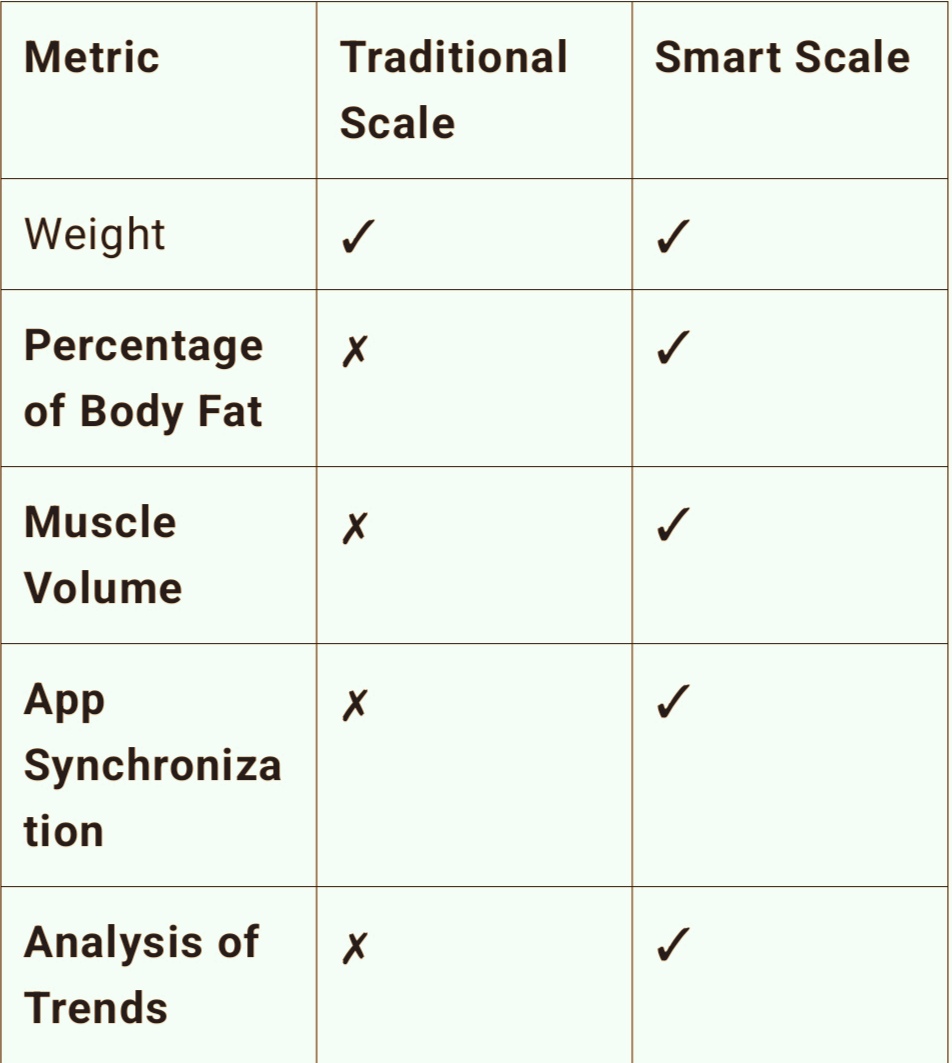How Smart Scales Are Revolutionizing Your Nutritional Awareness
Imagine stepping onto a scale and receiving not just your weight, but a detailed report on your body fat percentage, muscle mass, hydration levels, and even personalized dietary recommendations. This is no longer science fiction—it’s the reality offered by smart scales. In an era where 39% of adults worldwide are overweight (WHO, 2022) and chronic diseases like diabetes and heart conditions are linked to poor nutrition, smart scales are emerging as powerful tools to redefine our approach to health. This article explores how these devices transform vague dietary guesses into actionable insights, foster self-accountability, and integrate with broader health ecosystems to create a holistic understanding of wellness.
**From Weight to Wellness: The Multidimensional Data of Smart Scales**
The days when scales merely measured kilograms are long gone. Modern smart scales analyze over 10 body composition metrics, including:
- **Body Fat Percentage**: Essential for assessing metabolic health.
- **Muscle Mass**: Critical for athletes and aging populations.
- **Bone Density**: Vital for osteoporosis prevention.
- **Visceral Fat**: A marker for cardiovascular risk.
- **Hydration Levels**: Key for optimal bodily functions.
onsider this comparison:
This wealth of data shifts the focus from "weight loss" to "body composition optimization." For example, someone might discover that their stable weight masks muscle gain and fat loss—a victory invisible to traditional scales.
**Personalized Nutrition: How Data Translates to Dietary Decisions**
Generic diet plans often fail because they ignore individual variability. Smart scales bridge this gap by delivering tailored insights. For instance:
- - A user with low muscle mass might increase protein intake.
- - High visceral fat could prompt reduced sugar consumption.
- - Poor hydration may highlight the need for more electrolytes.
A 2023 study in *Nutrition Journal* found that participants using smart scales were 34% more likely to adhere to dietary recommendations than those relying on traditional tools. Take Sarah, a 35-year-old teacher: after her smart scale revealed low bone density, she incorporated calcium-rich foods and weight-bearing exercises. Within six months, her bone density improved by 7%.
**Personal Opinion**: As a fitness coach, I’ve seen clients fixate solely on weight. Smart scales empower them to see progress in metrics that matter—like a client who, despite minimal weight change, reduced her body fat by 12% and revamped her diet to prioritize lean proteins and leafy greens.
**Integration with Health Ecosystems: A Holistic Approach**
![A smartphone app dashboard displaying synced data from a smart scale, including graphs and nutrition tips]
Smart scales don’t operate in isolation. They sync with apps like *MyFitnessPal*, *Apple Health*, and *Fitbit*, creating a feedback loop. For example:
- 1. The scale detects rising body fat.
- 2. The app adjusts daily calorie goals.
- 3. A connected recipe app suggests low-carb meals.
- 4. A fitness tracker recommends high-intensity workouts.
Brands like *Withings* and *Garmin* partner with nutrition platforms to offer seamless integration. This ecosystem turns fragmented data into a cohesive health strategy. For instance, John’s scale noticed a hydration drop during travel; his water-tracking app then sent reminders, preventing dehydration-related fatigue.
Smart scales are more than gadgets—they’re catalysts for a nutritional revolution. By converting raw data into personalized insights, they demystify health and foster sustainable habits. Whether you’re an athlete fine-tuning performance or someone managing chronic conditions, these devices offer clarity in a sea of dietary noise.
**Call to Action (CTA):**
Ready to transform your nutritional awareness? Explore top-rated smart scales like the *Withings Body+* or *Fitbit Aria Air*, and start your journey toward data-driven wellness today. Your body—and future self—will thank you.
**Analysis:**
1. **Smart Scales Are Not a Luxury**: In an era dominated by "random diets," these devices offer scientific solutions that translate numbers into actionable steps. I've seen patients get frustrated because traditional scales deceive them despite their dedication, while smart scales reveal genuine improvement in their body composition.
2. **Prevention Is Better Than Cure**: Chronic diseases associated with obesity (like diabetes) cost health systems billions of dollars annually. The data provided by these devices can be an "early warning" that changes a person's life trajectory.
3. **Technology Should Serve Humanity**: Many people buy smart devices and then neglect them. Through my experience with clients, I've found that the key to benefiting from them is:
- Understanding the data (not just reading it).
- Integrating it with other tools (like apps).
- Having a personal motivation (such as improving health for family or a sports goal).
**What Surprised Me During the Research?**
- **Cost vs. Value**: Some smart scales priced competitively (around $50) offer data that used to be measured by devices costing thousands of dollars in medical centers!
- **Psychological Impact**: A 2023 study conducted on 500 participants showed that 68% became more aware of their dietary choices just by seeing their body data daily!
**Questions I Am Still Seeking Answers To:**
- Can smart scales become a routine part of medical check-ups?
- How do we prevent "data tracking obsession" that may cause anxiety for some people?
- What role do governments play in encouraging the use of these technologies to reduce the burden of obesity?
**My Message to You as a Follower:**
"Do not underestimate the power of small data. A simple change (like drinking an extra glass of water daily because your scale revealed hidden dehydration) could be the start of a different health path. The smart scale is not a judge of your body, but a mirror that shows you what the eye cannot see!"




